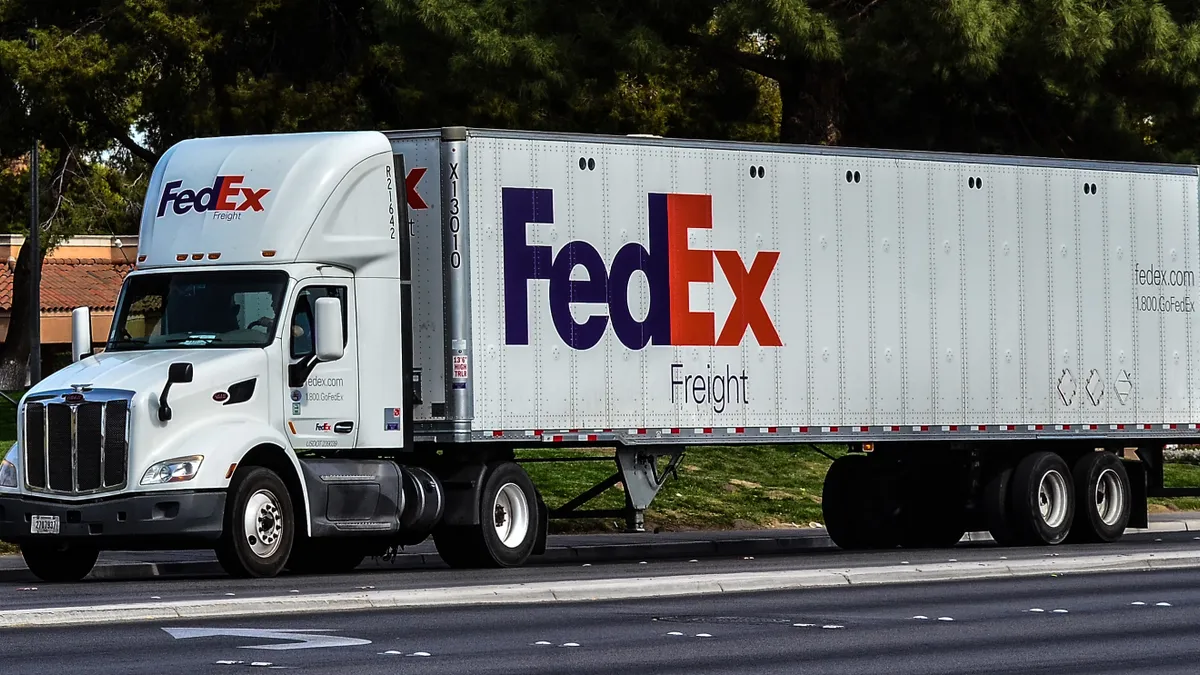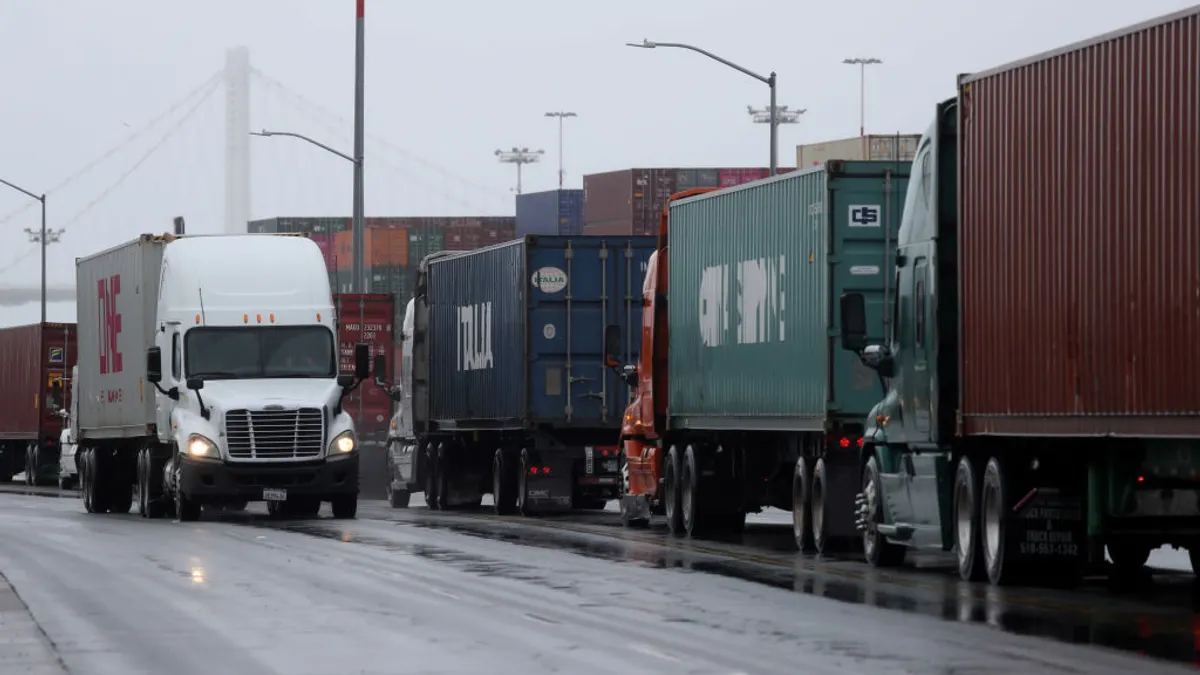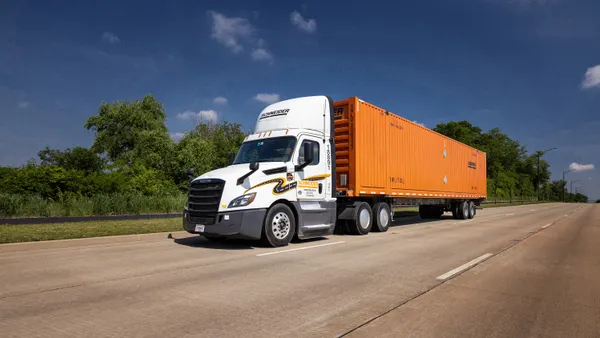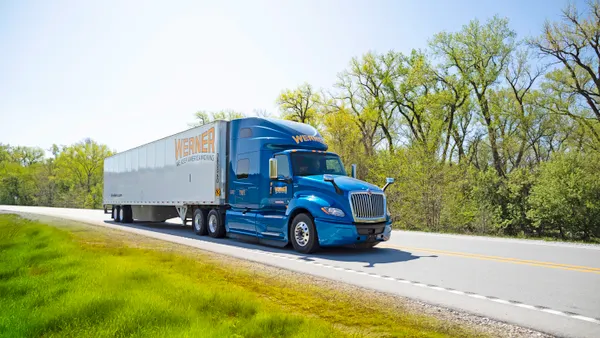FedEx’s planned spinoff of its Freight division raises several questions about the LTL carrier’s future.
FedEx provided some initial details last month — the carrier will retain the name FedEx Freight, for instance — but plenty of others have yet to be revealed.
Here are five questions Trucking Dive has about the impending spinoff, along with what we know so far.
1. When will the spinoff actually occur?
FedEx said it would happen within the next 18 months.
That’s a wide window, but the unwinding process takes time. Just ask TFI International, which acquired UPS Freight and rebranded it to TForce Freight in 2021.
“It’s not easy to do,” TFI Chairman and CEO Alain Bédard said on an October earnings call. “Don't forget, to do the spinoff of a division — like UPS has done with us — it's not a very easy process.”
2. Who will lead the spun-off carrier?
FedEx Freight President Lance Moll will continue to lead the carrier during the separation, putting him in line to run the spun-off LTL if the company selects an internal leader.
Moll started his career as a terminal manager for American Freightways and has 30 years of experience in the trucking industry, according to his company bio. He has worked in all areas of the business, including operations, sales, transportation, fleet maintenance, facility services and safety.
VP of LTL Sales Tom Connolly will lead an expanded, dedicated LTL sales force for the new company, FedEx President and CEO Raj Subramaniam said on a December earnings call.
3. What happens to any previously bundled parcel and LTL business?
A majority of small customers’ FedEx Freight business is bundled with parcel, EVP and Chief Customer Officer Brie Carere said on the December earnings call.
Scooter Sayers, founder and president of consulting firm Sayers Logistics, warned on LinkedIn: “If those deals un-bundle it could expose these small customers, who tend to be more profitable than larger customers, to other LTL carriers.”
But most of the actual volume at FedEx Freight is negotiated on an independent contract, Carere noted on the call.
“We really made a pivot ... about four or five years ago, recognizing that when we are competing in a fragmented market, we had to negotiate the freight business separately,” Carere said.
4. What does the spinoff mean for the rest of the LTL market?
Other carriers and stakeholders are already considering what the spinoff of the nation’s largest LTL carrier could mean for their businesses and the market as a whole.
TFI’s Bédard expects the spinoff to be net positive for the rest of the LTL industry.
“It's a good move,” he said on the October earnings call. “It makes a lot of sense. I think it's also going to be good for the LTL industry.”
5. How will a spun-off FedEx Freight fare on its own?
FedEx slashed spending on trucks and trailers at FedEx Freight last year in advance of the move, deferring equipment purchases to the spun-off business amid a persistently weak freight environment.
Spun-off companies tend to outperform their former parents and the S&P 500 within the first 18-24 months after a spinoff, according to Trivariate Research.
The spun-off LTL will continue commercial collaboration with FedEx to ensure a seamless transition for customers. But FedEx Freight will be on the hook for additional annual costs from the addition of 300 new LTL-specific sales reps, Sayers said.
“So expect their OR to face some headwinds,” Sayers wrote in his LinkedIn post.












